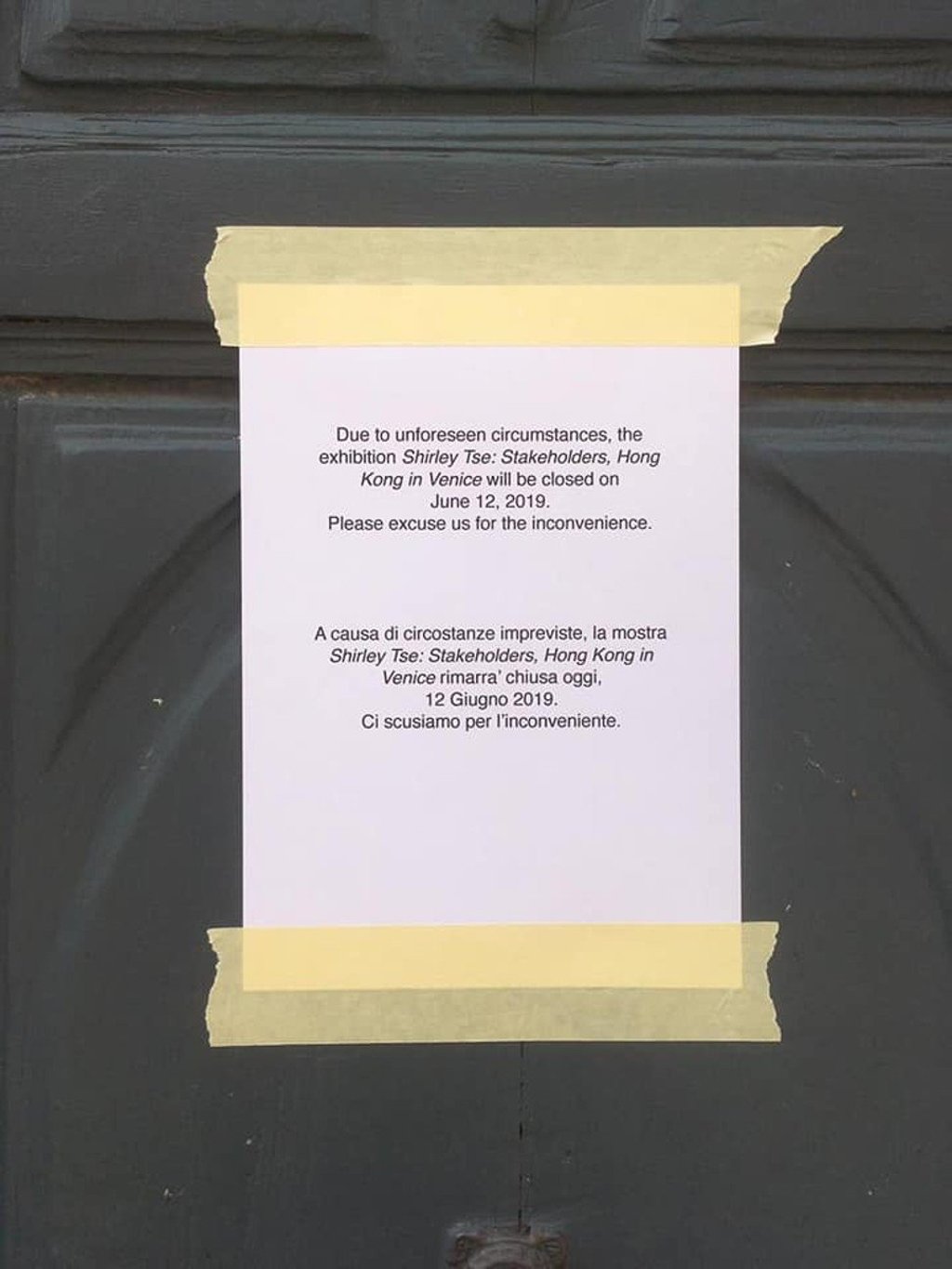Hong Kong pavilion at Venice Biennale closes amid extradition bill protests
- According to a photo posted on Facebook, the exhibition ‘Shirley Tse: Stakeholders, Hong Kong in Venice’ will be closed today
- Around 100 arts organisations, including commercial art galleries, have suspended operations in protest at proposed changes to Hong Kong extradition law

According to a photo posted on Facebook by Christina Li, guest curator of artist Shirley Tse’s exhibition at the pavilion, a notice in English and Italian at the entrance reads: “Due to unforeseen circumstances, the exhibition ‘Shirley Tse: Stakeholders, Hong Kong in Venice’ will be closed on June 12, 2019. Please excuse us for the inconvenience.”
“Shirley and I respect people’s right to strike,” Li told the Post by phone. “We asked the three staff on duty at the pavilion and it became clear that we won’t have the manpower to keep the pavilion open today.”
Hong Kong’s participation in the world’s most prestigious contemporary art biennial is co-organised by the government’s Arts Development Council and M+, the museum under construction at the West Kowloon Cultural District.

Around 100 Hong Kong arts organisations, including commercial galleries, signed up to call a strike on Wednesday as lawmakers were expected to begin a series of votes on the extradition measure. Those proceedings have been postponed as protesters and the police clash outside the legislature.